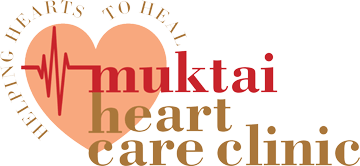
23 Feb HOW I CAN TAKE CARE OF MY HEART IN AN EFFICIENT MANNER
Cardiovascular diseases (CVDs) are the world’s leading killers, causing one in three deaths. The cause of heart attacks and strokes is often multifactorial & combination of tobacco use, unhealthy lifestyle and obesity, dysfunction and alcohol use, high blood pressure, diabetes, and high cholesterol.
It is not too late to begin changing your lifestyle to a healthier heart. Apart from visiting Dr. Sachin Chaudhary, Here are certain practical steps you can inculcate
1. Eat the heart of healthy food
A healthy heart diet includes a combination of a variety of foods including fruits, vegetables, grains, cereals, and nuts. Cut down on salty foods such as ham, bacon, sausage, hotdog, and salty foods such as dried fish. Use calamine juice and vinegar to supplement your diet instead of high-sodium spices such as soy sauce, fish sauce, and ketchup. Avoid processed, canned, and fast foods. Replace simple sugary snacks such as donuts, cookies, etc. with fresh fruits and vegetables, and when dry, add sugary soda sodas and sugary juices with water.
2. If you are overweight, lose weight
Obesity and obesity are defined as a body mass index (BMI) of 25 or higher. High waist circumference points to excess fat within the abdomen and is associated with an increased risk of developing cardiovascular disease. Try to reduce 500 kilocalories in your daily diet, which will help bring about a weight loss of about half to about 1 kilogram per week.
3. Increase regular exercise to 2.5 hours a week
Exercise contributes to improving blood pressure, improving cholesterol levels and other blood lipids, and controlling weight. Healthy people can start with small amounts of exercise (even as part of their normal daily activities) and gradually increase their duration, frequency and intensity. Adults are encouraged to do at least 150 minutes of moderate exercise (e.g. walking fast, climbing stairs, dancing, gardening, or doing chores that can cause a slight increase in heart rate) spread throughout the week.
4. Do not use tobacco
Quitting smoking is the greatest health gift you can give your heart and there are immediate and long-term health benefits, including a life span of up to 10 years. After quitting for a year, the risk of coronary heart disease is almost half that of smokers. Fifteen years after quitting, the risk of heart disease is similar to that of a non-smoker.
5. Avoid drinking alcohol
Alcohol abuse has been linked to more than 200 cases of illness and injury, including heart disease. There is no safe level of alcohol consumption, so it is best to avoid alcohol altogether to protect your heart.
6. Check your blood pressure and sugar regularly
An important way to keep the heart healthy is that your blood pressure and sugar levels should be checked regularly by a health professional. Some people do not show symptoms even if they have high blood pressure – and it can damage your heart. It is also important to talk to your health worker if you have behavioral risks (unhealthy diet, exercise, tobacco, and alcohol use) to help you plan the lifestyle changes you should take to get your health back on track. If you are diagnosed with high blood pressure or diabetes, set goals with your healthcare provider and take your medication regularly. Include your loved ones in your journey of a healthy heart.


